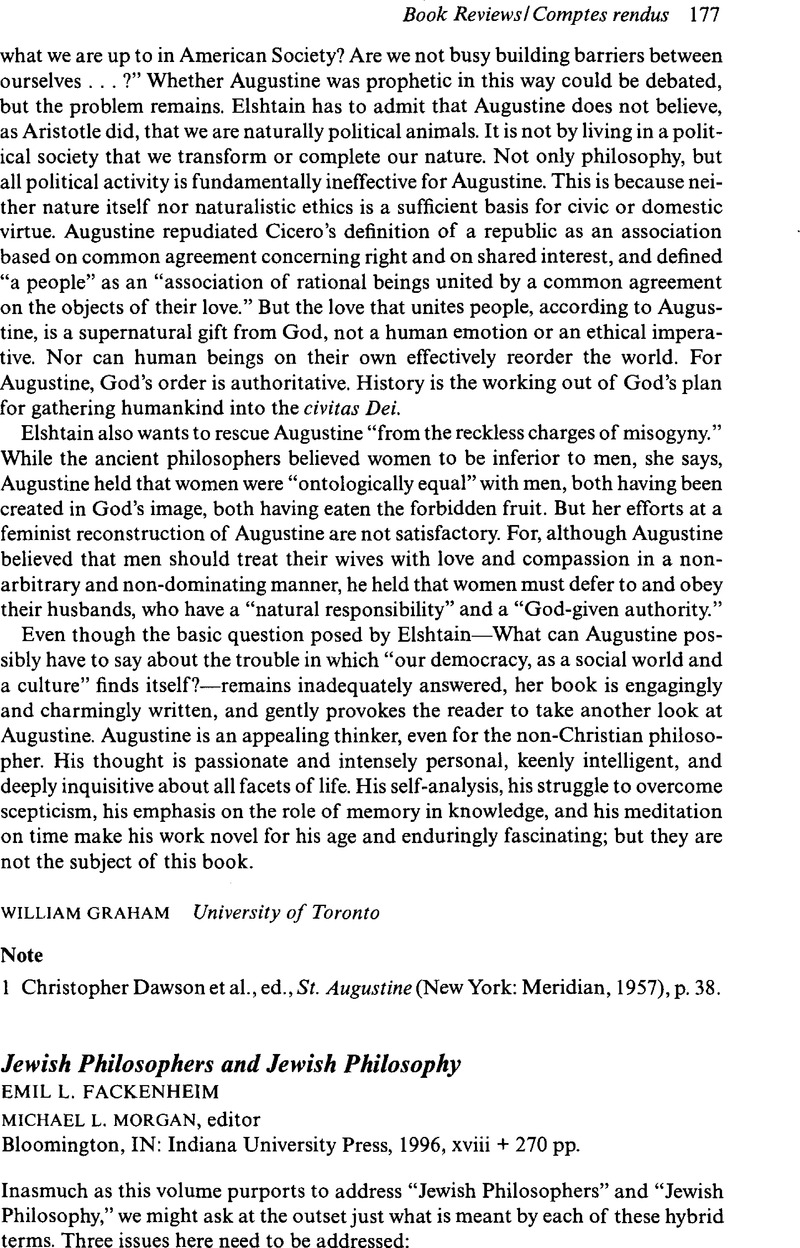No CrossRef data available.
Published online by Cambridge University Press: 13 April 2010

1 See, in this regard, Warren, W. Z., “Why Maimonides Was Not Mutakallim,” in Perspectives on Maimonides, edited by Kraemer, J. L. (Oxford: Oxford University Press, 1991), pp. 105–14.Google Scholar
2 For the purposes of this discussion of fundamentals, I will not relate to the claim that even within Fackenheim's terms Ahad Ha-am should also be deemed a “philosopher” on account of his references to Herbert Spencer and other English philosophers.
3 In a more moderate formulation he states in his chapter, “Pinchas Peli as a Jewish Philosopher: Generally, I would define a Jewish philosopher (as distinct from a Jewish thinker) as one … who exposes his Jewish commitments to general philosophy, and the latter to Jewish commitments” (p. 107).
4 See his book, God's Presence in History (New York: New York University Press, 1972), p. 100Google Scholar, n. 10, where he grants that “the fate of the Gypsies… is at least in one sense more tragic—that no one seems to bother to commemorate them.” Nonetheless, a fundamental distinction still remains as “no comparable hate propaganda was directed by the Nazis against the Gypsies.”
5 Leibowitz, Yeshayahu, Judaism, Human Values, and Jewish State, edited by Goldman, E. (Cambridge, MA: Harvard University Press, 1992), p. 217.Google Scholar